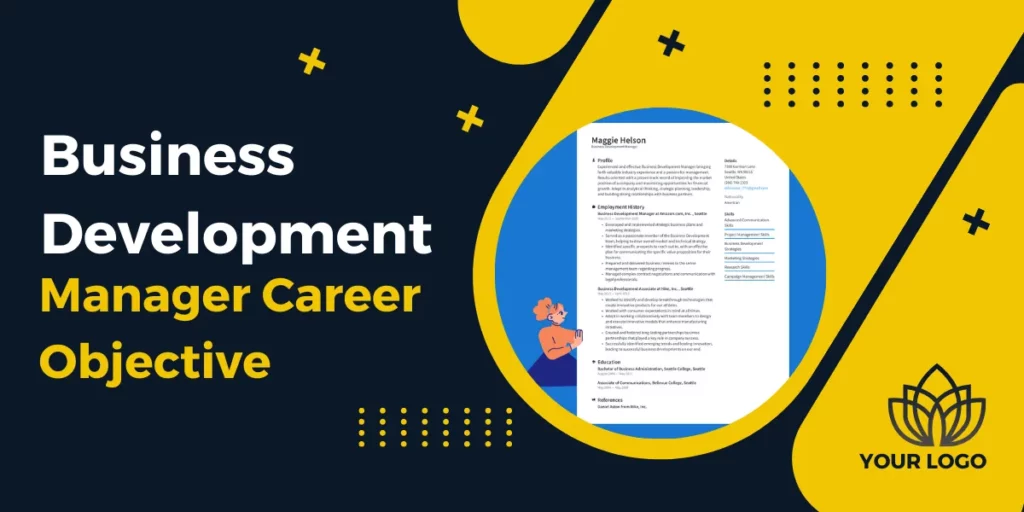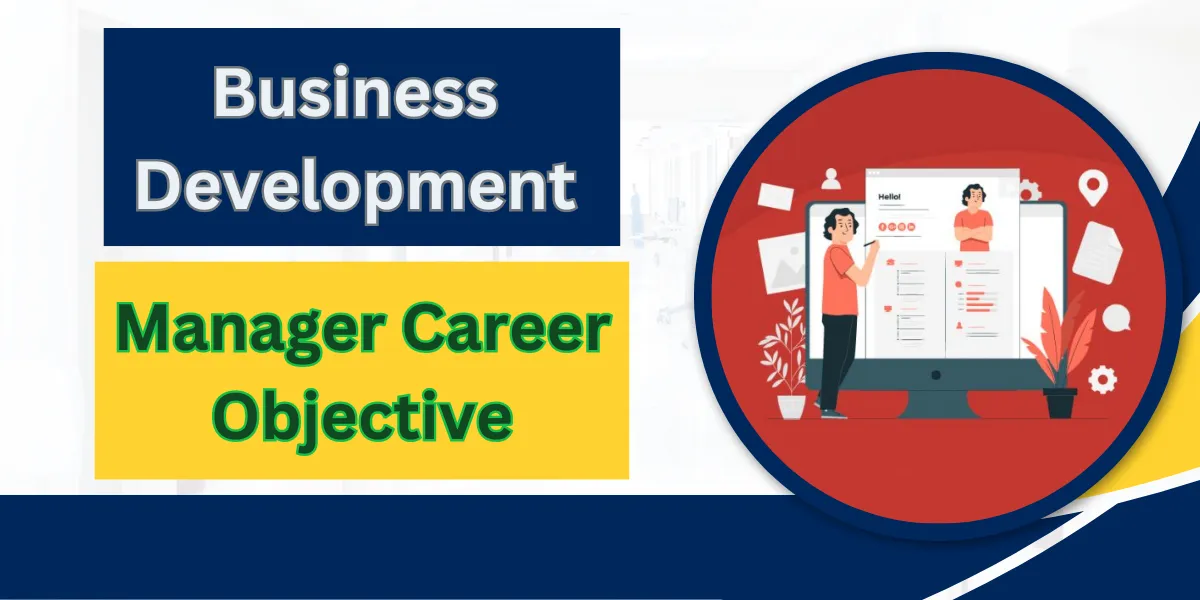Crafting an Effective Business Development Manager Career Objective
In the competitive business development landscape, a well-defined career objective can set the stage for success. As a business development manager, your career objective serves as a guiding light, helping you outline your professional aspirations, highlight your skills, and showcase your commitment to growth. This article explores the importance of a well-crafted career objective and provides valuable insights on creating one that stands out.
Understanding the Role of a Business Development Manager:
Defining the Business Development Manager Role:
A business development manager is responsible for driving growth and creating organizational opportunities. They identify and build relationships with potential clients, develop strategic partnerships, and explore new markets to expand the company’s reach.
Key Responsibilities and Skills:
Business development managers are skilled in market research, sales strategy development, negotiation, and relationship management. They analyze market trends, identify target audiences, and create business plans to achieve revenue goals. Excellent communication, leadership, and analytical skills are essential for success in this role.
The Significance of a Strong Career Objective:
Setting Clear Goals and Aspirations:
A strong career objective provides clarity on your professional goals and aspirations. It helps you define what you want to achieve as a business development manager, whether it’s driving revenue growth, expanding market share, or leading strategic initiatives.
Demonstrating Passion and Motivation:
A well-crafted career objective showcases your passion for business development and highlights your motivation to excel in the field. It demonstrates your commitment to continuous learning, staying updated on industry trends, and adapting to new market dynamics.

Aligning Personal Objectives with Company Goals:
An effective career objective aligns your objectives with the goals of the company you’re applying to. It shows that you understand the organization’s mission, values, and strategic direction and are dedicated to contributing to its success.
Components of an Effective Career Objective:
Keep It Concise and Specific:
Craft your career objective concisely and focused, highlighting the key aspects of your professional goals and the value you bring to the role. Avoid generic statements and provide specific details about your desired achievements instead.
Highlight Relevant Skills and Expertise:
Emphasize the skills and expertise that make you well-suited for a business development manager role. These may include relationship building, market analysis, sales strategy development, networking, and leadership abilities.
Emphasize Your Value Proposition:
Clearly articulate the unique value you bring Business Development Manager Career Objective. Highlight your track record of driving growth, achieving targets, and delivering results. Focus on how your skills and experience align with the company’s needs and objectives.
Tailor It to the Company and Industry:
Customize your career objective to showcase your understanding of the company and industry. Highlight your knowledge of market trends, competitive landscape, and potential growth opportunities that align with the organization’s goals.
Showcase Long-Term Vision:
Demonstrate your long-term vision for your career as a business development manager. Outline your aspirations for personal growth, leadership roles, and contributions to the industry. This showcases your dedication and commitment to continuous professional development.
A well-crafted career objective is an essential tool for business development managers to define their goals, demonstrate their passion, and align themselves with the company’s objectives. By following the tips in this article, you can create an impactful career objective that sets you apart and paves the way for a successful career in business development.



